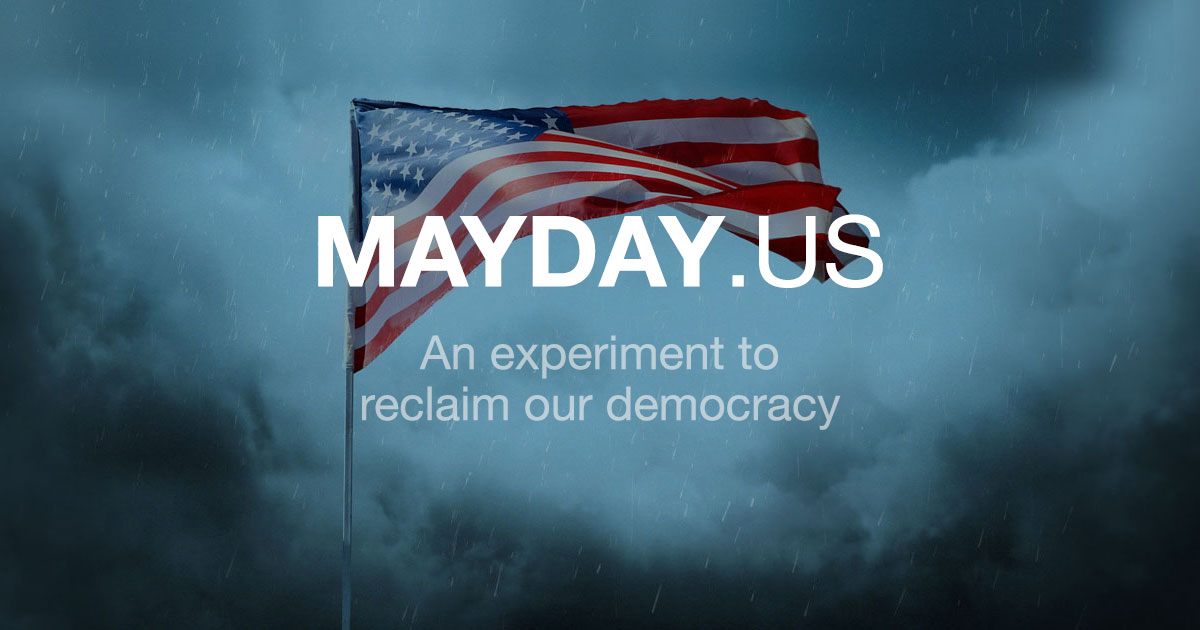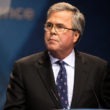In June, Harvard professor and activist Lawrence Lessig launched the MaydayPAC to support candidates who will champion campaign-finance reform. By July 4, it hit its target of $5 million from 50,000 small donors, which will be matched by Silicon Valley donors. MaydayPAC continues to solicit individual donations online. The excerpt below, from MaydayPAC’s website, describes Lessig’s super PAC as one that can end all super PACs. —L.D.
Eighty-five percent of funding for congressional campaigns comes from large donors. This concentration gives funders of political campaigns enormous power. A small number can affect the agenda of the U.S. Congress.
The MaydayPAC is an independent political action committee (“super PAC”) that aims to elect a Congress committed to fundamental reform of the way political campaigns are funded. The PAC will operate in both the 2014 and 2016 election cycles. In 2014, it will pilot the idea of a super PAC pressing for fundamental reform by running independent campaigns in five districts across the country. If successful, the PAC will organize a much larger intervention in 2016 with the objective of electing a majority of Congress that has either co-sponsored, or pledged to support, fundamental reform of the way elections are funded.
Campaigns for U.S. Congress are privately funded in America. Eighty-five percent of that funding comes from large contributions. Candidates and political parties target large contributors in their fundraising efforts, but the number of such contributors is tiny: No more than .05 percent of the American population gives even the maximum amount [$2,600 per election] to one Congressional candidate. The number giving $10,000 or more is less than .01 percent.
This concentration gives funders of political campaigns enormous power, either directly (as direct contributors) or indirectly (through funding secured by lobbyists and other intermediaries). As members of Congress become dependent upon these funders—spending anywhere from 30 percent and 70 percent of their time raising money—the influence of such funders grows. A trivial number of large contributors has the capacity to block reforms that are relatively invisible to the public. A small number can affect the agenda of Congress or even block reforms that are generally popular. As a recent Princeton study concludes, “Economic elites and organized groups representing business interests have substantial independent impacts on U.S. governmental policy while average citizens and mass-based interest groups have little or no independent influence.”
This dynamic is not partisan. Instead, it blocks reforms on the left and right. It blocks substantial legislative initiatives—such as climate-change legislation or meaningful health care reform. It also blocks efforts to simplify taxes or shrink the size of government: all things being equal, complicated taxes and a more extensive government increase the ability of members of Congress to raise money. As Robert G. Kaiser details in So Damn Much Money: The Triumph of Lobbying and the Corrosion of American Government (2010), that fact interferes with the legislative agenda of the right as much as the left.
The founders of the MaydayPAC believe this dynamic has destroyed the capacity of the U.S. government to govern. We believe it is critical to find a way to change the way elections are funded in order to free legislators to pursue the reforms that motivate voters to support them.
We have therefore established this super PAC with the objective of electing a Congress committed to fundamental reform of the way campaigns are funded. Based on the analysis by one of America’s most prominent political firms, we believe we can achieve this objective by 2016.







0 Comments